
Bicycle Anatomy and Critical Failure Points: A Closer Look
Bicycle Anatomy and Critical Failure Points: A Closer Look
Peyton Nielsen
Peyton Nielsen
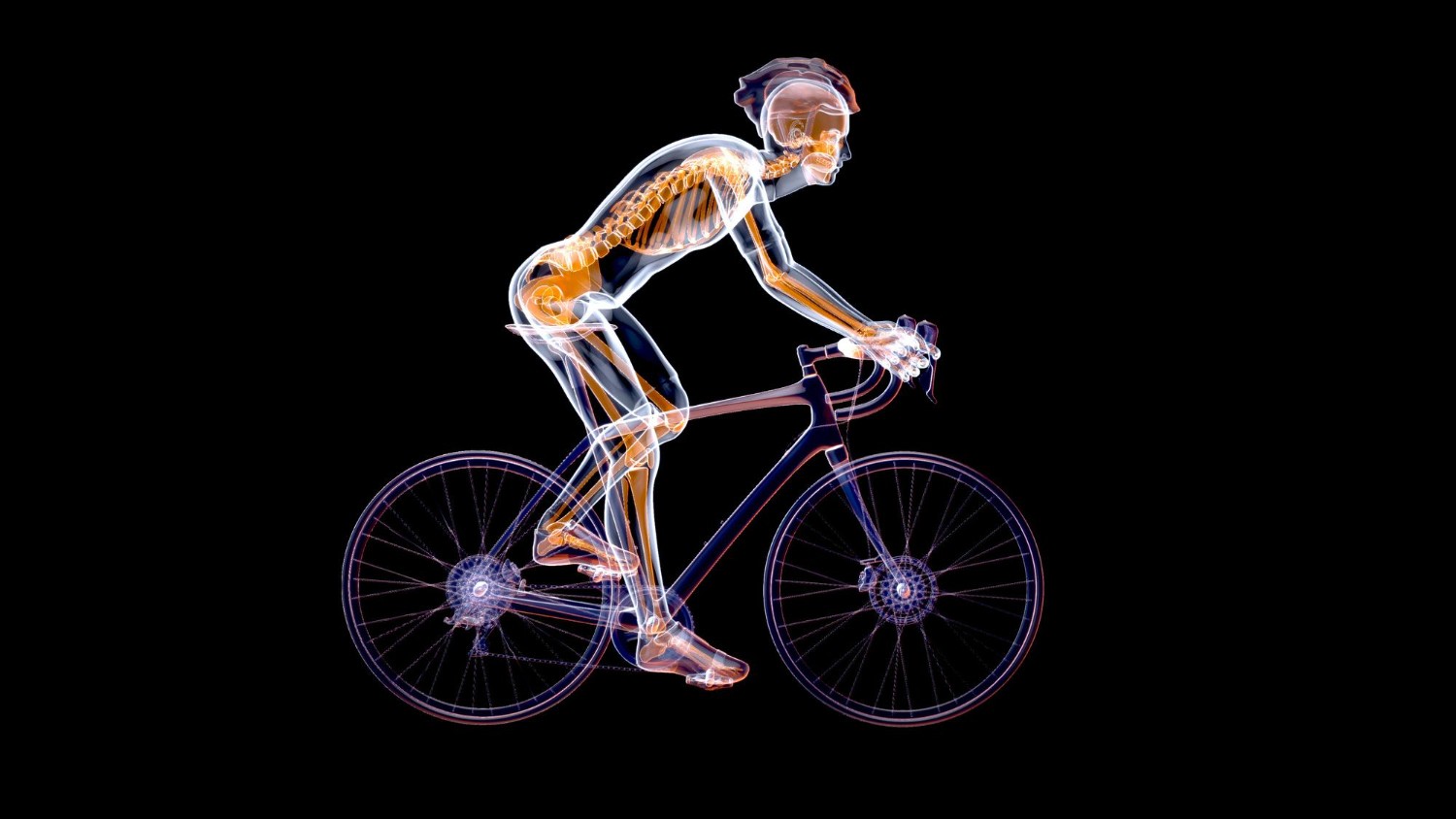


Bicycle frames are commonly composed of four specific materials: carbon fiber, steel, aluminum alloy, and titanium alloy. Each material will behave differently, but most bikes will catastrophically fail in a few common ways.
Many components on a bike can fail without causing catastrophic failure. For example, a shock losing air compression, a broken pedal, or a flat tire can all fail and cause a crash. Although any crash can be quite serious, usually crashes from these types of failures do not lead to significant injury. However, other failures such as a broken steer tube or severely bent rim or critical equipment failure can cause very dangerous crashes.
Much of the stress placed on a bike through normal riding will be located at the head tube and bottom bracket. Because of this, these locations are most susceptible to damage. While metal alloys such as steel, aluminum, or titanium will usually show evidence of cracks and deformation developing before total failure, it is still possible for a structural component or weld to fail without warning. Due to its brittle nature, carbon fiber frames tend to give much less warning before catastrophic failure.
Other dangerous failure points tend to occur at the locations where the rider contacts the bicycle: pedals, seat, and handlebar. Of these three locations, handlebar failure is generally the most dangerous due to a loss of the rider’s ability to control the bike, often leading to the rider falling forward over the front of the bicycle in a “pitch-over” crash. Similarly dangerous is loss of control such as hindered steering, unintentional braking caused by interference by foreign objects, or no braking power at all.
The following pictorials give a detailed look at various components of a bicycle:
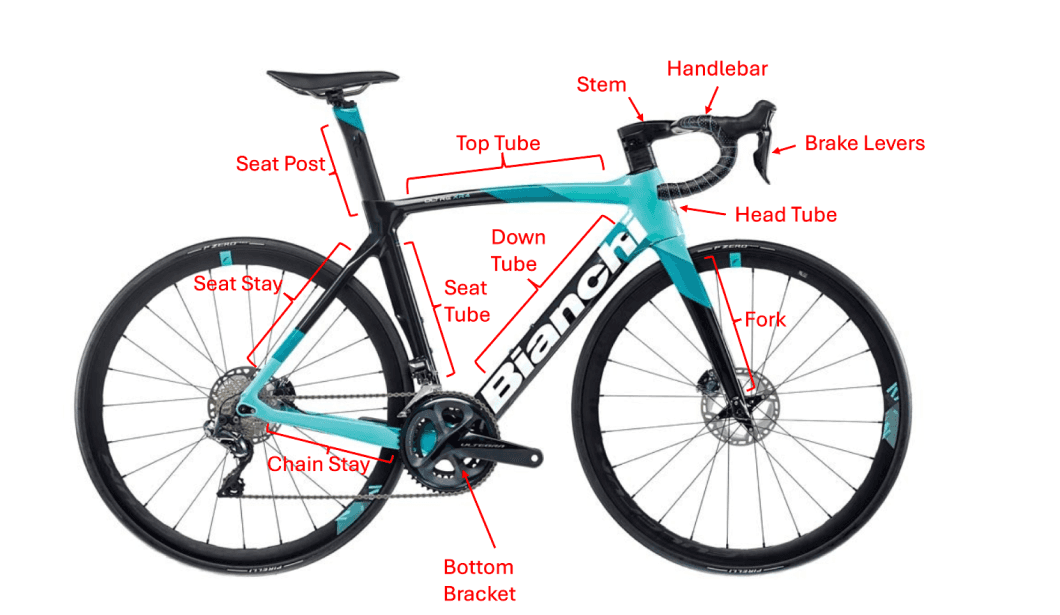
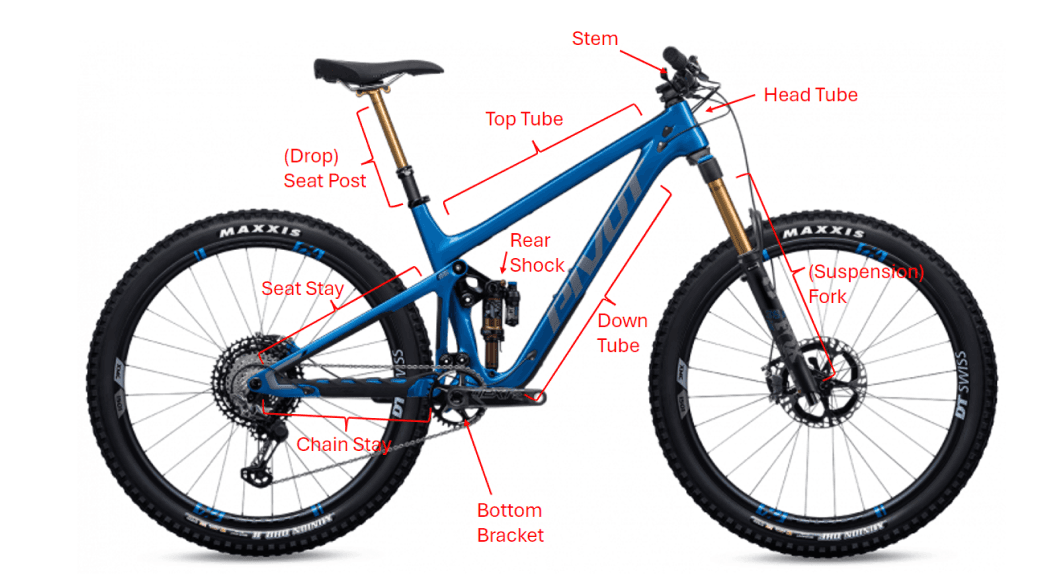
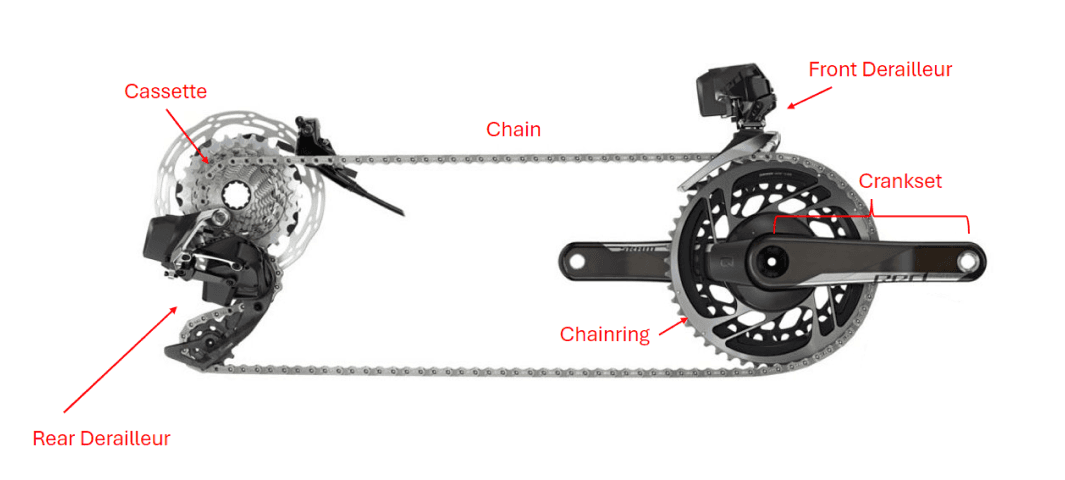
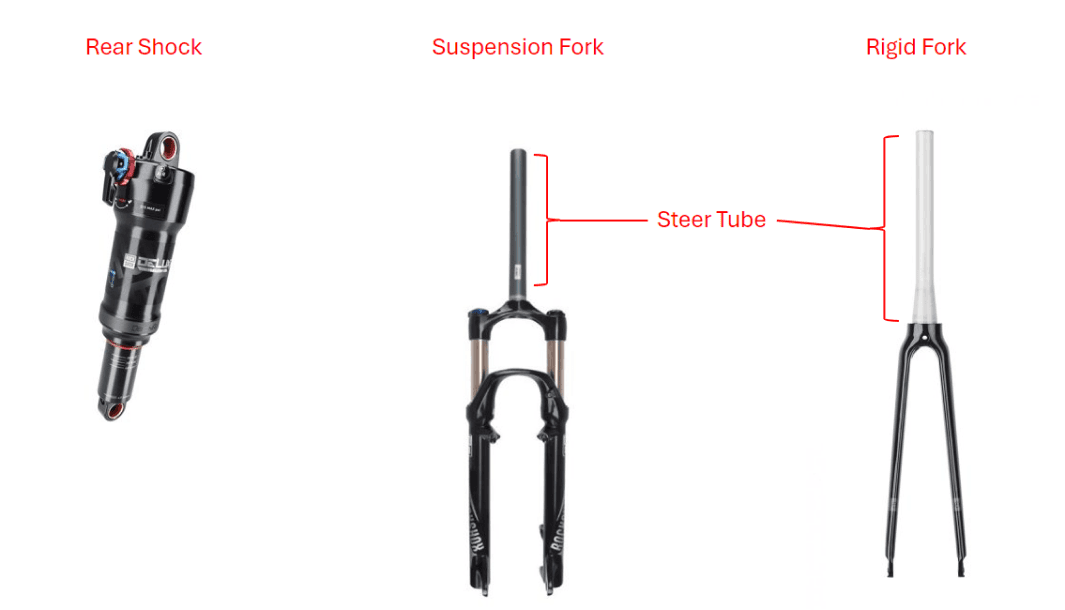
Bicycle frames are commonly composed of four specific materials: carbon fiber, steel, aluminum alloy, and titanium alloy. Each material will behave differently, but most bikes will catastrophically fail in a few common ways.
Many components on a bike can fail without causing catastrophic failure. For example, a shock losing air compression, a broken pedal, or a flat tire can all fail and cause a crash. Although any crash can be quite serious, usually crashes from these types of failures do not lead to significant injury. However, other failures such as a broken steer tube or severely bent rim or critical equipment failure can cause very dangerous crashes.
Much of the stress placed on a bike through normal riding will be located at the head tube and bottom bracket. Because of this, these locations are most susceptible to damage. While metal alloys such as steel, aluminum, or titanium will usually show evidence of cracks and deformation developing before total failure, it is still possible for a structural component or weld to fail without warning. Due to its brittle nature, carbon fiber frames tend to give much less warning before catastrophic failure.
Other dangerous failure points tend to occur at the locations where the rider contacts the bicycle: pedals, seat, and handlebar. Of these three locations, handlebar failure is generally the most dangerous due to a loss of the rider’s ability to control the bike, often leading to the rider falling forward over the front of the bicycle in a “pitch-over” crash. Similarly dangerous is loss of control such as hindered steering, unintentional braking caused by interference by foreign objects, or no braking power at all.
The following pictorials give a detailed look at various components of a bicycle:





LET’S WORK TOGETHER
We’re looking forward to hearing how we can help.
Call our office at 720-458-9190 or click below.
TELL US ABOUT YOUR CASE
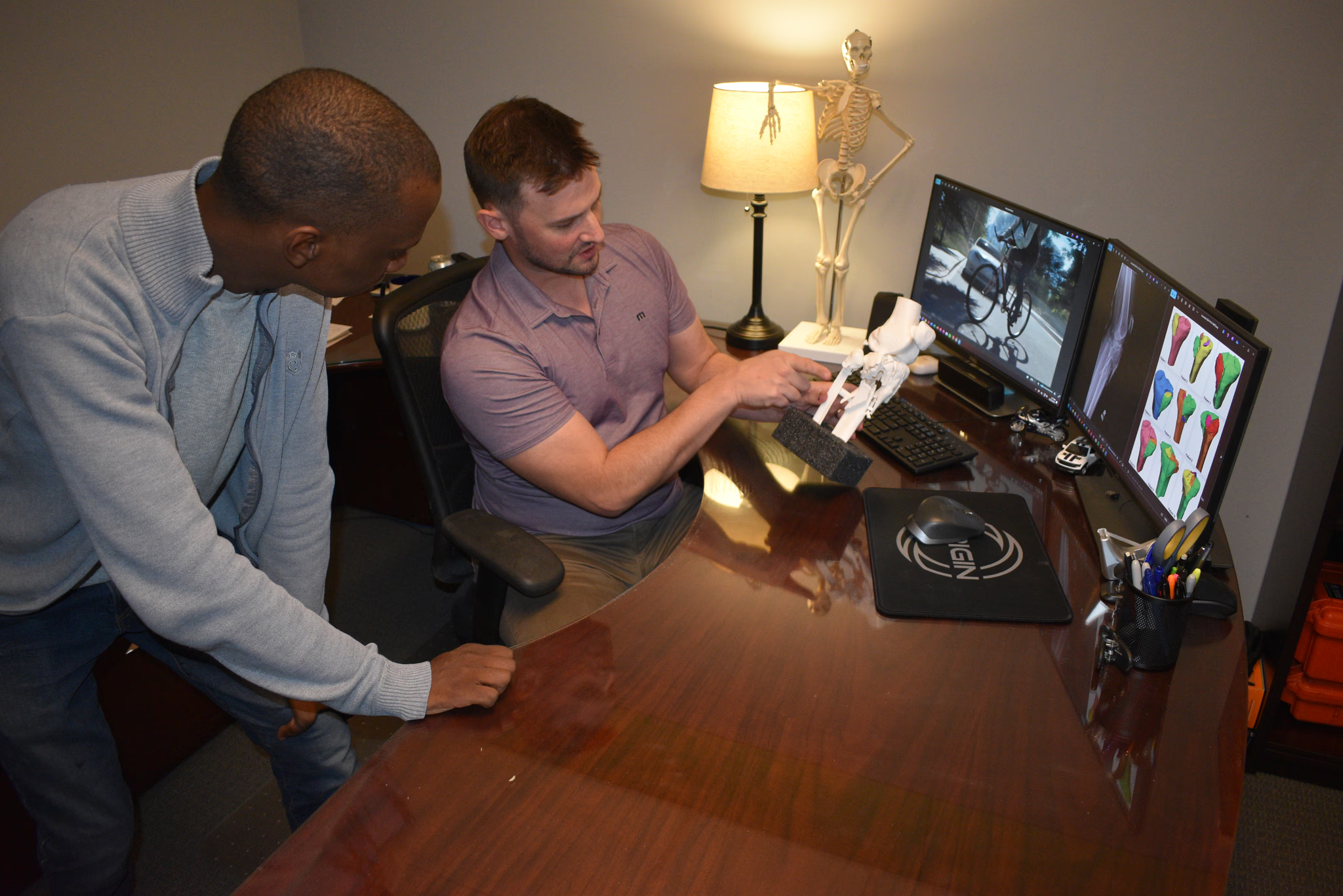

LET’S WORK TOGETHER
We’re looking forward to hearing how we can help.
Call our office at 720-458-9190 or click below.
TELL US ABOUT YOUR CASE


LET’S WORK TOGETHER
We’re looking forward to hearing how we can help.
Call our office at 720-458-9190 or click below.
TELL US ABOUT YOUR CASE
COMPASS
CONSULTING
ENGINEERS
EXPERTS IN FORENSIC ENGINEERING
& ACCIDENT RECONSTRUCTION
Compass Consulting Engineers, P.C.
10875 Dover St., # 900 Westminster, CO 80021
COMPASS
CONSULTING
ENGINEERS
EXPERTS IN FORENSIC ENGINEERING
& ACCIDENT RECONSTRUCTION
Compass Consulting Engineers, P.C.
10875 Dover St., # 900 Westminster, CO 80021
COMPASS
CONSULTING
ENGINEERS
EXPERTS IN FORENSIC ENGINEERING
& ACCIDENT RECONSTRUCTION
Compass Consulting Engineers, P.C.
10875 Dover St., # 900 Westminster, CO 80021